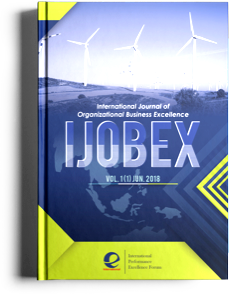Abstract
The Malaysian Competition Commission (MyCC) was mandated in 2010 to provide and engaged with stakeholders across all levels in promoting the Competition Act 2010 (CA 2010). This study aroused from the need to conduct a comparative study to its earlier 2013 Baseline Study in ascertaining MyCC’s effectiveness in carrying out its role in advocacy work. Therefore, the study’s main objective is to examine whether the level of awareness and perception of CA 2010 has increased over time. Other issues examined were (i) quality of advocacy and outreach of MyCC, (ii) the level of awareness and knowledge of the various stakeholders of the CA 2010 and of the role of MyCC and (iii) the perception of stakeholders on the effectiveness (quality) of enforcement of MyCC. 463 respondents participated through e-survey. 48 participated in four FGDs that took place nationwide. Results indicated overall level of knowledge on the existence of MyCC and CA 2010 is very high among SMEs compared to 2013 Baseline Study. SMEs are also the highest stakeholder group in acknowledging on the quality of MyCC’s advocacy and outreach programs. Practitioners (lawyers and economists) show the highest awareness level of CA 2010. Consumers/Trade Associations show the highest awareness level of MyCC’s role. SMEs, the highest stakeholder group in acknowledging the effectiveness (quality) of MyCC’s enforcement. Practitioners(law & economists) acknowledged that Malaysia businesses are run by only a few large players with not enough competition. The business entities (MNCs, SMEs and GLCs) indicate having good and positive practices, attitude and culture of Compliance with the CA 2010. In summary, it shows that the effectiveness of MyCC role in promoting he CA 2010 to the Malaysians.
References
Australian Competition & Consumer Commission (ACCC). (2009). Cartel Deterrence and Detection - A guide for government procurement offices. Canberra: ACCC.
Hawkins, S., Yen, D.C., & Chou, D.C. (2000). Awareness and challenges of internet security. Information Management and Computer Security, 8(3), 131-143.
Hoj, J. (2007). Competition Law and Policy Indicators for the OECD countries. OECD Department Working Papers, 568, OECD Publishing. Retrieved on 1 October 2016 from https://www.innovationpolicyplatform .org/content/ state-competition.
Nielsen, V.L., & Parker, C. (2005). The ACCC Compliance and Enforcement Survey: Report of Preliminary Findings. The Australian National University, Centre for Competition and National Policy.
Office of Fair Trading (OFT). (2010). Drivers of Compliance and Noncompliance with Competition Law (OFT1227). Retrieved on 5 March 2018 from https://www.gov.uk/government/uplo ads/system/uploads/attachment data/f ile/284405/oft1227.pdf
Office of Fair Trading (OFT). (2011). Company Directors and Competition Law. OFT guidance.
RKA Consulting Group. (2013). Final Report: Baseline Study on Awareness of CA 2010 in Malaysia.
Suruhanjaya Persaingan Malaysia. (2015). Strategic Plan for Competition Advocacy & Communication 20152017. Suruhanjaya Persaingan Malaysia, Malaysia Competition Commission. Retrieved from http://www.mycc.gov.my/sites/default /files/handbook/MYCC_Strategy%20 Plan%20Handbook%2001092015.pdf.
Seay, M.C., Carswell A.T., Wilmarth, M., & Zimmerman, L.G. (2014). Exploring HECM counsellors’ fraud awareness and training. Journal of Financial Crime, 21(4), 484-494.
The World Bank. (2016). “Small is the New Big” - Malaysian SMEs Help Energize, Drive Economy. Retrieved from http://www.worldbank.org/en/news/fe ature/2016/07/05/small-is-the-new-big---malaysian-smes-help-energize-drive-economy.
Yap, M.H.T., & Ineson, E.M. (2010). Hospitality managers’ knowledge of HIV and HIV education: an exploratory study. International Journal of Contemporary Hospitality Management, 22(1), 69-81.

This work is licensed under a Creative Commons Attribution-NonCommercial-ShareAlike 4.0 International License.
Copyright (c) 2018 BINUS Higher Education

